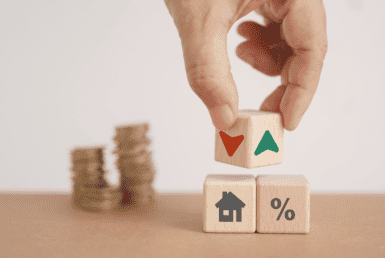How a property is sold in France

When the buyer and seller have agreed on a price and on terms of the deal, an offer is prepared with the terms of the deal. This is signed by both parties, but in effect only the seller is legally bound. The buyer is, of course, morally obligated.
A purchase agreement is then drawn up, which forms the basis of the deal and later the deed itself. Only the notary can draw up the deed.
In connection with the deal, various statutory documents must be prepared. Different documents are to be used depending on whether the property being sold is an apartment or villa. But it also depends on when the property was built and where it is located in France.
As a starting point, certificates must be prepared for termites, asbestos, energy consumption, electricity, gas, lead and the risk of natural and technological disasters.
When the property is a villa, there must also be a report from SPANC if there is a septic tank on the property.
In the case of flats and properties in owners’ associations, the property must be measured on the inside with a specified net area on the property (Loi Carrez).
Furthermore, statutory documents from the owners’ association must be available on all the cadastres that are being sold (apartment, parking, garage, basement). The documents from the owners’ association include, among other things, articles of association and modifications of the 3 recent years of general meeting minutes and information on the last 2 years of common expenses and unforeseen expenses on the property.
The purchase price may include furniture and fixtures, and, in that case, a detailed furniture/fixtures list must be prepared.
Once the agreement has been signed by both parties, the statutory 10-day withdrawal period in favour of the buyer takes effect.
Before the expiry of the statutory right of withdrawal, the buyer must make a payment of 10% of the purchase price. This is paid into the notary’s account to secure both parties.
When buying real estate in France, it is possible to enter into a purchase agreement as a cash transaction or with financing reservations. This is a negotiation with the buyer.
If the parties agree on a cash transaction, the rest of the sale price is paid immediately before the deed signature.
In the case of a trade with financing reservations, the seller must wait 45 – 60 days for the buyer to obtain the necessary financing, as stipulated in the purchase agreement. The deal is not considered final until the buyer has been approved by their bank.
If the buyer cannot obtain financing, the deal lapses at no cost to the buyer.
When a property is traded in France, the vast majority of municipalities have a right of first refusal with a response period of 2 months. The right of first refusal is partially intended to avoid “inappropriate” payment of the purchase price but is also used if a municipality has a desire to develop part of the city in a certain direction or the desire for the property to be used for social purposes.
Some municipalities respond quickly, others on the last day and some not at all. In that case, the earliest the deed can be signed is after the 2 months.
It therefore varies how quickly a deed can be signed after the conclusion of the purchase agreement.
If there is no financing reservation and the relevant municipality does not have a right of first refusal, the deed may be signed 2 months after the conclusion of the purchase agreement.
If there is a financing reservation and the municipality has a right of first refusal, the deed can probably not be signed until 3 – 4 months after the signing of the purchase agreement.
The seller should be made aware that the buyer typically wants to inspect the property immediately before signing the deed. This is to ensure that the property looks like it did when it was purchased. And to ensure that other agreements regarding any furniture/fixtures have been fulfilled. At the same time, meters for electricity, water, heat, oil, etc. are read.
The deed is then settled in the notary’s office. For this meeting, the seller must bring a passport or other valid ID as well as original and signed account information from the bank, to which the proceeds are to be transferred.
If the seller does not read and understand French, the notary will make sure that there is an interpreter present who will translate it all into the relevant language. This is mandatory and costs 400 – 500 €.
Should you be prevented from attending, a power of attorney can be signed for the notary, who will then sign the deed on your behalf.
Once the deed is signed, the seller must hand over all keys to the buyer and will no longer have access to the property. A sales certificate “attestation de vente” will be handed out, which is proof of the sale as well as the notary’s statement of final income and expenses in connection with the transaction.
Upon signing the deed, the seller will be reimbursed Taxes Foncières, consumption taxes as well as any common expenses. The owner as of 1 January pays Taxes Habitation for the whole year and therefore there is no refund of this tax.



